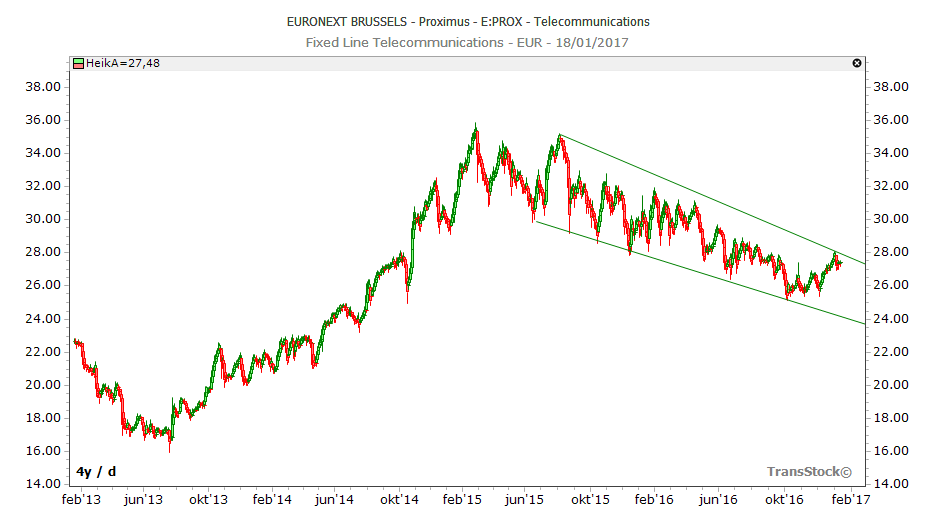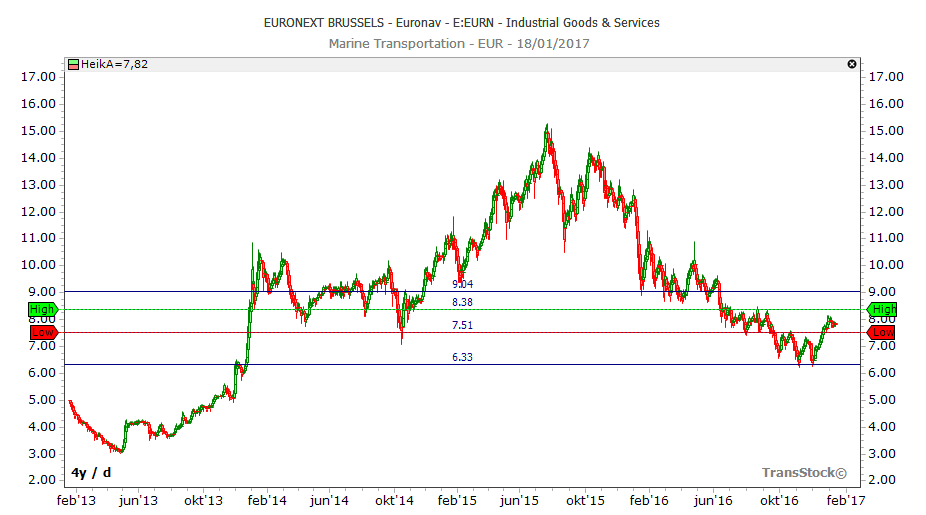Recently we read an article about Belgian Dividend stocks in the financial newspaper De Tijd. Are they worth a position in your dividend portfolio? Below you get our humble opinion and we discuss the pro and con’s.
A royal dividend is a payment each investor should aim for. In Belgium 50% of the stocks that are noted, paid in 2016 a dividend. The average dividend yield was last year 3,09%. Without the special dividends, the final average yield would be 2,58%. This dividend yield is After Taxes. In times of low interest rates on savings account a dividend yield of 2,58% is higher than the country inflation rate.
In the table (source De Tijd) you find the dividend yield of Belgian dividend paying stocks. But you also need to have investing rules. With some investing rules, you can avoid falling for hot tips or becoming emotional.
Here are 3 key Dividend Growth Investing Rules.
Rule #1 – Invest in companies that provide necessities and/or create value
There are services or products in the world that we cannot live without, those are sustainable services with a consistent or growing demands. For example, financial services, oil & gas, food, utilities and so on. You can rationalize that something is going to be needed even though it’s not an essential product or service to our lives and that’s fine but your core portfolio should have companies with essential and necessary products. Pick companies with a strong balance sheet.
Once those sectors or necessities are identified, you can start focusing on the best picks. The strength of this rule is that you can feel confident this company will be around due to the nature of their business. Examples in Belgium are Sofina (SOF), Ackermans & van Haaren (ACKB), chemical company Solvay (SOLB), warehouse chain Colruyt (COLR) and the small brewing company C0.Br.Ha (COBH).
Rule #2 – Only invest in dividend paying stocks
We have made it a focus that we want to be paid when markets go sideways and to that end, my investments must pay a dividend. It also means we can expect a minimum return of our investment while we wait for the stock to appreciate. The infrastructure fund TINC that is noted since 2015 on the stock market can be highlighted here. It pays a dividend yield of 2,79%.
Rule #3 – Is the government a shareholder?
This rule just acts as an important protection. Governments are investors in dividend paying companies such as Telecom, Infrastructure and other services. In Belgium, the government is invested in the Belgian Post (BPOST) and telecom provider Proximus (PROX). Those two companies are royal dividend payers.
BPOST pays a dividend yield of 4,16% and Proximus 3,90%. But before investing in a stock, also review the graph of the stock price and the trend channel the stock is moving in. Proximus is in a downwards trend since September 2015 when EU announced they will slash roaming costs of telecom companies. This was one of the cash cows of major Telecom companies.

We do not apply the government rule for US stocks or ETF’s. But for Belgian dividend paying shares it can be important as a government doesn’t want his payout to go down.
Do we own any Belgian dividend paying Stocks?
You may wonder whether we own any European or Belgian dividend paying stocks. If you read our Financial strategy, you know the rules we apply. In our goals of 2017, we focus on at least 8% or more dividend. So when you review the dividend paying stocks, you can only find one stock that fits this rule.
We do own the marine transportation company Euronav (EURN) in our stock portfolio and we added to our position in recent months when the share price bounced off the 6.33 Euro level and broke though the 7,5 Euro level. You will be able to read my passive dividend income in my upcoming dividend payout reports throughout the year 2017.

The disadvantages of Belgian Dividend paying stocks
What we don’t like about Belgian dividend paying stocks, is that they only pay dividend once a year. That’s why we avoid in general European and Belgian paying stocks or ETF’s.
We focus on monthly and quarterly dividend paying stocks and ETF’s. It gives us so much more pleasure to see each month or quarter money being posted on our bank account. Even a savings account doesn’t give us that pleasure.
The advantages of Belgian Dividend paying stocks
The advantage of Belgian dividend paying stocks, is that they pay dividend in EURO so you don’t have the currency exchange risk and the majority of those companies have very solid balance sheets. In the future you can receive special dividends or an increase in dividend.
Final conclusion
Belgian dividend paying stocks pay a dividend yield on average of 2,58%. Personally we would only consider a dividend yield above 3% after taxes if you are interested to purchase any of those companies. Then you have at least some cash flow which is higher than the country inflation rate. If you live in Belgium, I am sure you will be familiar with some of those companies, so you know what they produce or sell.
Take a look at the stock price graph FIRST before considering any purchase as you don’t want to lose money while receiving a dividend.
If you want a dividend yield higher than 8%, focus on US stocks and ETF’s.
Pleae be aware, that this is our personal opinion. Read our disclaimer if you don’t know what you are doing.

No Comment
You can post first response comment.